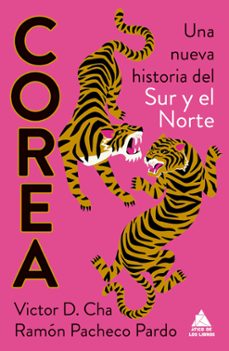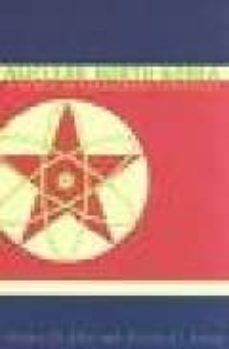Imprescindibles
Más vendidos Libros más leídos eBooks más leídos Todos los libros Todos los libros Autores destacados Series y sagas
Recomendados Libros recomendados Autores destacados Libros que inspiran Vidas con historia LGTBIQ+ English books
Ficción
Literatura Contemporánea Estudios literarios Clásicos Cuentos Poesía Teatro Libros de bolsillo Sagas literarias
Géneros literarios Novela romántica y erótica Novela negra Novela histórica Narrativa fantástica Novela de ciencia ficción Novela de terror Narrativa de humor Narrativa de viajes
No Ficción
Ciencias y tecnología Biología Ciencias Ciencias naturales Divulgación científica Informática Ingeniería Matemáticas Medicina Salud y dietas Formación Idiomas Estilo de vida Libros de Cocina Guías de viaje Narrativa de viajes Deportes Libros de Juegos Manualidades
Humanidades Autoayuda y espiritualidad Ciencias humanas Derecho Economía y Empresa Psicología y Pedagogía Filosofía Sociología Filología Biblioteconomía Estudios filológicos Estudios lingüísticos Estudios literarios Historia y crítica de la Literatura
Infantil
Juvenil
#Jóvenes lectores Narrativa juvenil Clásicos adaptados Libros Wattpad Libros Booktok Libros de influencers Libros de Youtubers Libros Spicy Juveniles Libros LGTBIQ+ Temas sociales Libros ciencia ficción Libros de acción y aventura Cómic y Manga Juvenil Cómic Juvenil Manga Shonen Manga Shojo Autores destacados Jennifer L. Armentrout Eloy Moreno Nerea Llanes Hannah Nicole Maehrer
Libros de fantasía Cozy Fantasy Dark academia Hadas y Fae Romantasy Royal Fantasy Urban Fantasy Vampiros y hombres lobo Otros Misterio y terror Cozy mistery Policiaca Spooky Terror Thriller y suspense Otros
Libros románticos y de amor Dark Romance Clean Romance Cowboy Romance Mafia y amor Romance dramatico Romcom Sport Romance Otros Clichés Enemies to Lovers Friends to Lovers Hermanastros Slow Burn Fake Dating Triángulo amoroso
Cómic y Manga
Novela gráfica Novela gráfica americana Novela gráfica europea Novela gráfica de otros países Personajes, series y sagas Series y sagas Star Wars Superhéroes Cómics DC Cómics Marvel Cómics otros superhéroes Cómics Valiant
Audiolibros
Literatura Contemporánea Narrativa fantástica Novela de ciencia ficción Novela de terror Novela histórica Novela negra Novela romántica y erótica Historia Historia universal
Humanidades Autoayuda y espiritualidad Ciencias humanas Economía y empresa Psicología y pedagogía Filosofía Infantil Audiolibros infantiles
Ciencia y tecnología Ciencias naturales Divulgación científica Medicina Salud y dietas Arte Cine Música Historia del arte
eBooks
Literatura Contemporánea Narrativa fantástica Novela de ciencia ficción Novela de terror Novela histórica Novela negra Novela romántica y erótica Juvenil Más de 13 años Más de 15 años Infantil eBooks infantiles
Humanidades Autoayuda y espiritualidad Ciencias humanas Economía y Empresa Psicología y Pedagogía Filosofía Historia Historia de España Historia Universal Arte Cine Música Historia del arte
Ciencia y tecnología Ciencias naturales Divulgación científica Medicina Salud y dietas Filología Estudios lingüísticos Estudios literarios Historia y crítica de la Literatura Estilo de vida Cocina Guías de viaje Ocio y deportes
Victor D. Cha
Victor D. Cha es profesor en la Universidad de Georgetown y ocupa la Cátedra de Corea en el Centro de Estudios Estratégicos e Internacionales (CSIS) en Washington D. C. Anteriormente, fue director de Asuntos Asiáticos en el Consejo de Seguridad Nacional de la Casa Blanca.
Recibe novedades de Victor D. Cha directamente en tu email
Filtros
Del 1 al 2 de 2
Atico de los Libros 9788419703965
La historia definitiva de las dos Coreas, desde el siglo XIX hasta la actualidadCorea es una nación dividida. Corea del Sur es una democracia vibrante, la décima economía del mundo y cuna de una cultura con creciente influencia internacional. Corea del Norte, en cambio, esta gobernada por el regimen mas autoritario del planeta, es un pais pobre en una region prospera y es conocida principalmente por el culto a la personalidad en torno a la familia Kim. Sin embargo, ambas Coreas comparten una apasionante historia comun.En este libro, basado en decadas de investigacion, los expertos en geopolitica Ramon Pacheco Pardo y Victor D. Cha exploran la historia de la Corea moderna, desde finales del siglo xix, pasando por la ocupacion japonesa y la guerra y division durante la Guerra Fria, hasta la actualidad. Un pequeño pais atrapado entre las mayores potencias del mundo -como China, Japon, Rusia y Estados Unidos-, el destino de Corea siempre ha estado estrechamente ligado a su geografia y a la fortaleza de su liderazgo y sociedad.Esta es una historia fundamental de una region clave del mundo que explica la evolucion de las identidades de Corea del Norte y del Sur, tan diferentes entre si, y explora que futuro les espera a ambas, y tambien al mundo.
Ver más
Tapa dura
Victor D. Cha y KANG, DAVID C.
COLUMBIA UNIVERSITY PRESS 9780231131292
The regime of Kim Jong-Il has been called "mad," "rogue," even, by the "Wall Street Journal," the equivalent of an "unreformed serial killer." Yet, despite the avalanche of television and print coverage of the Pyongyang government''s violation of nuclear nonproliferation agreements and existing scholarly literature on North Korean policy and security, this critical issue remains mired in political punditry and often misleading sound bites. Victor Cha and David Kang step back from the daily newspaper coverage and cable news commentary and offer a reasoned, rational, and logical debate on the nature of the North Korean regime. Coming to the issues from different perspectives -- Kang believes the threat posed by Pyongyang has been inflated and endorses a more open approach, while Cha is more skeptical and advocates harsher measures -- the authors together have written an essential work of clear-eyed reflection and authoritative analysis. They refute a number of misconceptions and challenge much faulty thinking that surrounds the discussion of North Korea, particularly the idea that North Korea is an irrational nation. Cha and Kang contend that however provocative, even deplorable, the Pyongyang government''s behavior may at times be, it is not incomprehensible or incoherent. Neither is it "suicidal," they argue, although crisis conditions could escalate to a degree that provokes the North Korean regime to "lash out" as the best and only policy, the unintended consequence of which are suicide and/or collapse. Further, the authors seek to fill the current scholarly and policy gap with a vision for a U.S.-South Korea alliance that is not simply premised on a North Korean threat, notsimply derivative of Japan, and not eternally based on an older, "Korean War generation" of supporters. This book uncovers the inherent logic of the politics of the Korean peninsula, presenting an indispensable context for a new policy of engagement. In an intelligent and trenchant debate, the authors look at the implications of a nuclear North Korea for East Asia and U.S. homeland security, rigorously assessing historical and current U.S. policy, and provide a workable framework for constructive policy that should be followed by the United States, Japan, and South Korea if engagement fails to stop North Korean
Ver más
Tapa blanda
Del 1 al 2 de 2



























